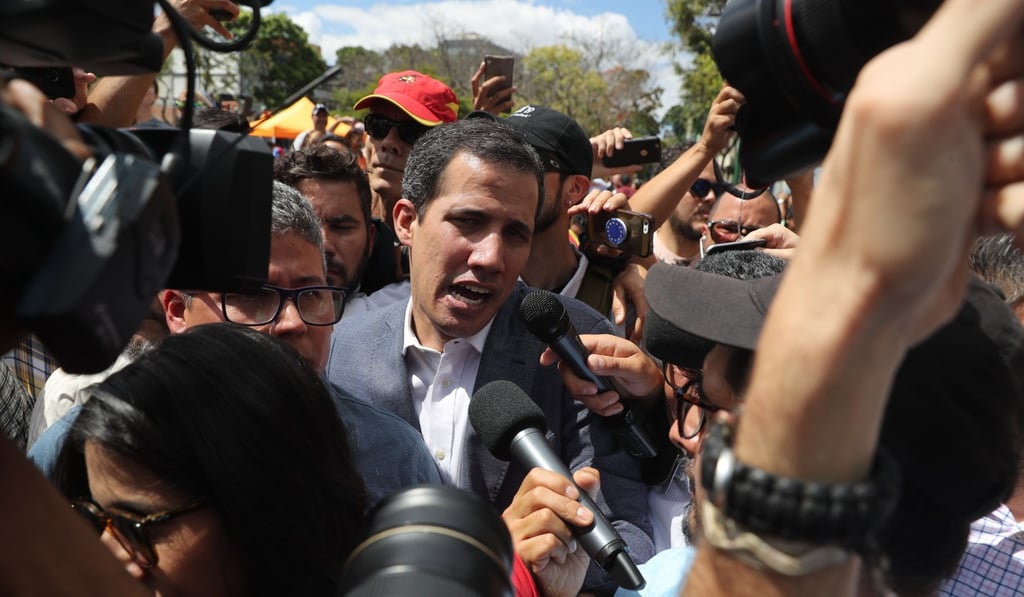Maduro abandons demand for US diplomats to leave Venezuela
- Analysts say president’s move represents a ‘loss in power’ as he tries to battle for support from the people, the military and the country’s oil industry

Venezuela abandoned its decision to sever diplomatic ties with the US, saying each country agreed to keep a so-called interest section open in their respective capitals.
The Saturday evening announcement that the missions would stay open was a retreat after days of bellicose rhetoric prompted by the US decision to recognise National Assembly leader Juan Guaido as the nation’s head of state.

President Nicolas Maduro’s election to a six-year term last year has been criticised as a fraud designed to keep him and his military allies in power despite the country’s years-long spiral into misery and hunger.
This weekend, the European Union demanded speedy elections and US Secretary of State Michael Pompeo told the UN that the socialist Maduro must go.
“It is time for every other nation to pick a side. No more delays, no more games. Either you stand with the forces of freedom, or you’re in league with Maduro and his mayhem,” Pompeo told the UN Security Council during an emergency session called by the US.